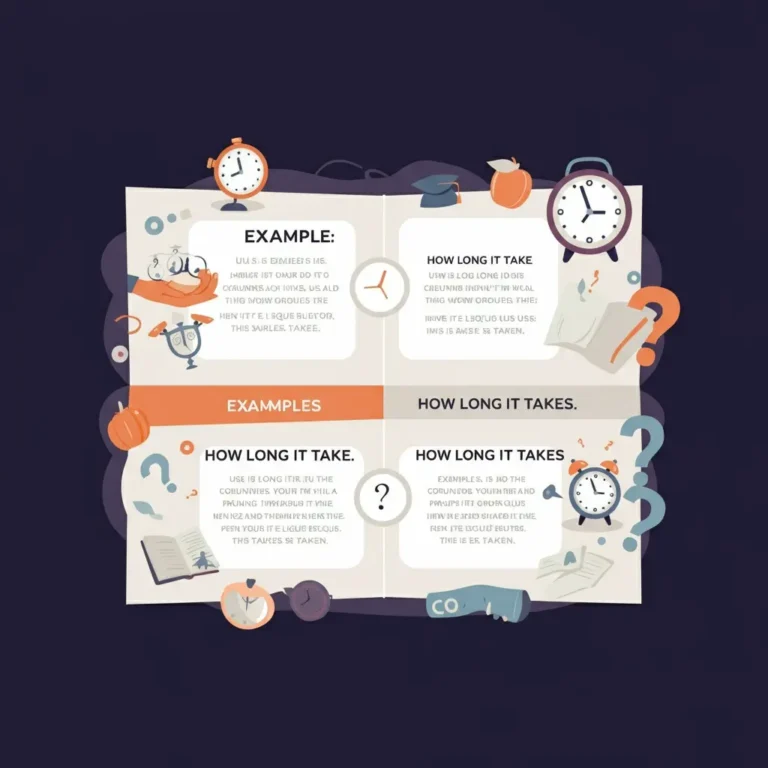How Long Does It Take to Become a Lawyer?
Becoming a lawyer is a rewarding career path, but it requires a significant investment of time and effort. If you’re considering law as your future profession, understanding the steps involved and how much time it takes can help you plan effectively. This guide will walk you through the entire process, from education to licensing, so you can get a clear picture of what to expect.
Table of Contents
Why Do People Choose a Career in Law?
Law is a career that offers diversity, intellectual challenges, and opportunities to make a significant impact on society. Some may pursue it for a desire to uphold justice, while others are drawn by the financial stability or the prestige associated with being a lawyer. Some have a passion for helping others resolve disputes or protecting individuals’ rights.
The Different Types of Lawyers
Lawyers are not a one-size-fits-all profession. Depending on your interests, you could focus on areas such as criminal defence, corporate law, environmental law, family law, or intellectual property law, among others. Your specialization can influence how you structure your educational path and career progression.
Educational Requirements for Lawyers
To practice law, you need a solid educational background. The typical path includes earning a bachelor’s degree, completing law school, and passing the bar exam. Each stage has specific requirements and timelines, which we’ll break down in the sections ahead.
How Long Does Law School Take?
Law school generally takes three years for full-time students. Some schools offer part-time programs that extend this timeline, accommodating students who may be working or have other commitments.
Accelerated Law Programs
Certain schools offer accelerated JD programs that can be completed in two years. However, these programs are more intensive and may not provide the same balance between study and personal time as standard three-year programs.
Undergraduate Studies – The Starting Point
The first step toward becoming a lawyer is earning an undergraduate degree, which typically takes four years to complete. While no specific major is required, common programs include political science, history, philosophy, or economics. The key is to excel academically, as law schools pay close attention to your GPA.
Taking the LSAT (Law School Admission Test)
The LSAT is a standardized test required by most law schools for admission. It evaluates skills like reading comprehension, logical reasoning, and analytical thinking. Many students spend two to three months preparing for it. A high LSAT score can boost your chances of getting into a competitive law school.
Choosing and Applying to a Law School
Once you’ve taken the LSAT, the next step is selecting a law school that aligns with your goals. Research schools’ specialities, bar passage rates, and employment statistics. Completing applications, which often include essays and recommendations, typically takes a few months.
Exploring the Juris Doctor (JD) Degree
The Juris Doctor is the professional degree awarded at the completion of law school. During the three years of study, you’ll cover foundational topics like constitutional law, contracts, civil procedure, and torts. Most programs also include opportunities for hands-on learning through mock trials and legal clinics.
Gaining Experience Through Internships
Internships and clerkships are a vital part of legal education. These opportunities give students real-world experience, often working under licensed attorneys. They can take place during summer breaks, adding additional value to your law school experience and giving you an edge in the job market.
Preparing for the Bar Exam
After earning your JD, the next step is preparing for the bar exam, which is a challenge of its own. Preparation periods typically range from six to twelve weeks, with some students dedicating more time based on their anticipated difficulty of the exam.
How Long Does Bar Preparation Take?
Preparation for the bar exam is intense. Most candidates enrol in structured bar review courses, which last two to three months. These courses include comprehensive study materials and practice tests.
The Bar Examination Process
The bar exam itself usually spans two days, though this can vary by state. It includes particular legal questions and an evaluation of whether you’re ready to practice law in your jurisdiction.
What Happens After Passing the Bar?
After passing the bar exam, you’ll complete any remaining administrative steps, such as a character and fitness evaluation. Once everything is cleared, you will be licensed to practice law in your state.
Ongoing Education and Specialization
Even after becoming a licensed lawyer, the learning doesn’t stop. Many states require attorneys to complete continuing legal education (CLE) courses regularly. Additionally, some attorneys choose to specialize further, which may involve additional certifications or degrees.
FAQs About Becoming a Lawyer
Can you become a lawyer without attending law school?
A few states in the U.S. allow aspiring lawyers to study under practising attorneys instead of attending law school, but this is less common.
How long does it take to become a lawyer in total?
The entire process—bachelor’s degree, law school, bar exam—takes about seven to eight years for most people.
Can I work while attending law school?
Most full-time law students find it difficult to work due to the demanding nature of law school. However, part-time programs may offer more flexibility.
Is the bar exam the same in every state?
No, each state has its exam. Some states use the Uniform Bar Examination, which is standardized.
How competitive is law school admission?
It can be highly competitive, especially for top-tier schools. Strong grades, LSAT scores, and extracurricular involvement are critical.
Final Thoughts
Becoming a lawyer is a challenging but achievable goal. While the process takes considerable time—roughly seven to eight years—the rewards include intellectual growth, career stability, and the opportunity to make an impact. By understanding each step, you can plan your path and build a fulfilling legal career.







